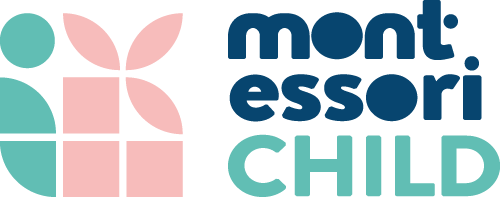[PT] 🇧🇷
A Filosofia Montessori
01. Ambiente Preparado
O termo "ambiente preparado" de Maria Montessori descreve a aparência externa da sala de aula. A sala de aula Montessori é cuidadosamente organizada. Materiais são agrupados logicamente de acordo com a área do currículo: Vida Prática, Sensorial, Matemática, Linguagem e Estudos Culturais. Móveis e outros materiais são adequados ao tamanho da criança.
02. Materiais Didáticos Montessori
Os materiais Montessori são únicos, ao contrário dos materiais encontrados em escolas convencionais, creches e/ou lojas de brinquedos infantis. Todos os materiais Montessori foram projetados e feitos pela Dra. Maria Montessori após observar a criança; em outras palavras, esses materiais são dispositivos cientificamente projetados.
03. Independência
A independência é a conquista da criança, um aspecto crucial e extremamente valioso da Filosofia Montessori. A criança anseia por independência, isso não é dado, é um processo interno, construído ao longo do tempo. A independência da criança é baseada em habilidades específicas. A Dra. Montessori dedicou uma área inteira do currículo ao desenvolvimento da independência da criança.
04. Liberdade de Escolha
As crianças são livres para escolher onde sentar, onde trabalhar (termo usado para descrever atividade com propósito; não há lição de casa ou brinquedos, todo material é uma atividade com propósito), elas podem fazer um lanche se estiverem com fome e prolongar uma atividade pelo tempo que for necessário. A liberdade de escolha traz consigo responsabilidades, o que Montessori chamava de "liberdade com limites".
05. Movimento
Além da liberdade de escolha, há liberdade de movimento. Na verdade, todo movimento na sala de aula Montessori é movimento com propósito. A Dra. Montessori observou que movimento e cognição estão intimamente entrelaçados; o movimento influencia o pensamento e a aprendizagem.
[EN] 🇺🇸
The Montessori Philosophy
01. Prepared Environment
The prepared environment is Maria Montessori's term to describe the external appearance of the classroom. The Montessori classroom is carefully organized. Materials are logically grouped according to curriculum area: Practical Life, Sensorial, Mathematics, Language, and Cultural Studies. Furniture and other materials are appropriate for the child's size.
02. The Montessori Didactic Materials
Montessori materials are unique, unlike materials found in conventional schools, daycare centers and /or children's toy stores. All Montessori materials were designed and made by Dr. Maria Montessori after observing the child, in other words, these materials are devices that have been scientifically designed.
03. Independence
Independence is the achievement of the child. A crucial and extremely valuable aspect of Montessori Philosophy. The child yearns for independence, this is not given, it is an internal process, built over time. The child's independence is predicated on specific skills. Dr. Montessori devoted an entire area of the curriculum to a focus on developing the child's independence.
04. Freedom of Choice
Children are free to choose where to sit, where to work, (term used to describe purposeful activity; there is no homework or toys, all material is a purposeful activity), they can have a snack if they are hungry, and prolong an activity for as long as necessary. Freedom of choice brings with it responsibilities, what Montessori called “freedom with limits”.
05. Movement
In addition to freedom of choice, there is freedom of movement. In fact, every movement in the Montessori classroom is movement with purpose. Dr. Montessori noted that movement and cognition are closely intertwined; Movement influences thinking and learning.













